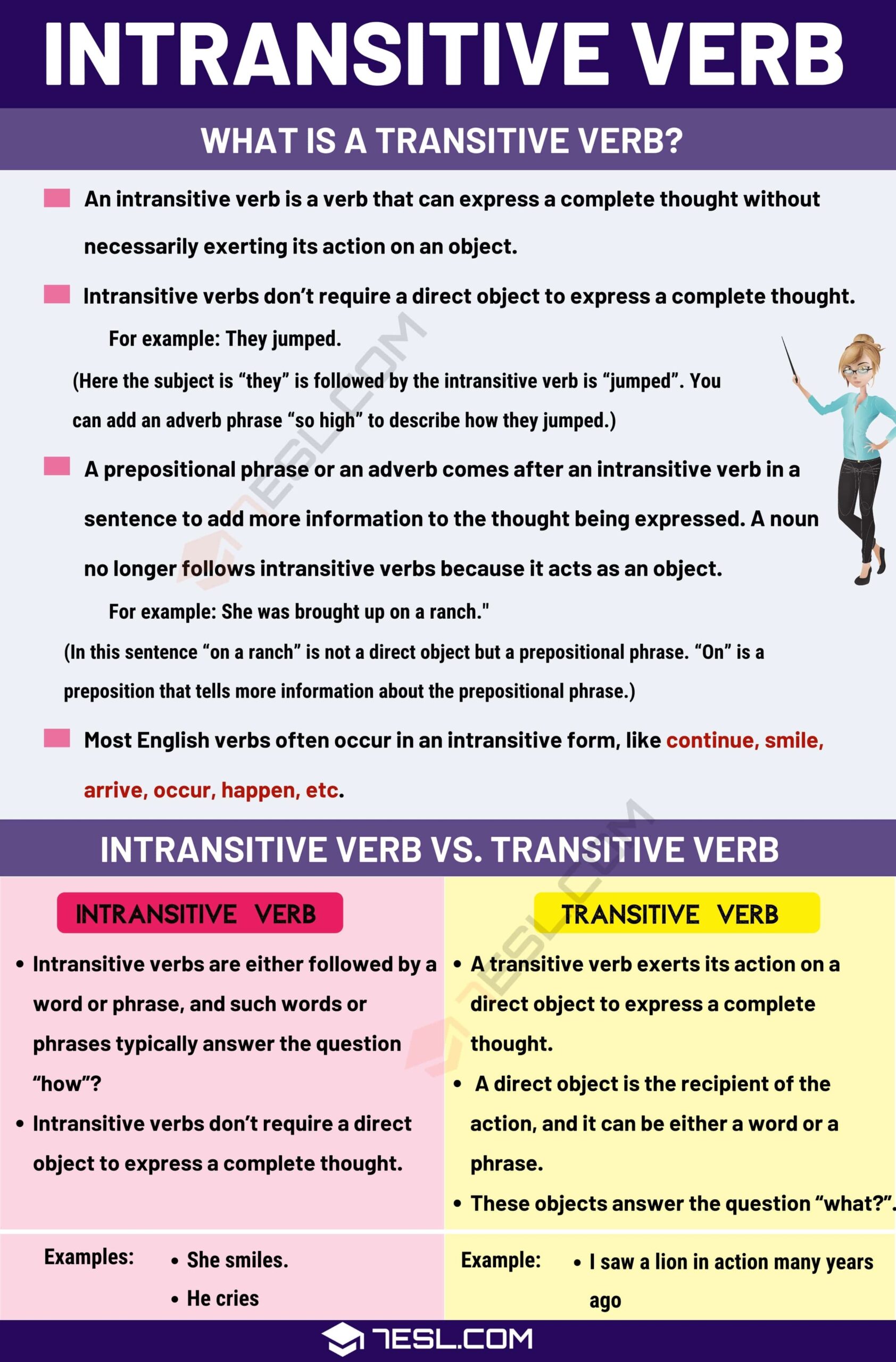Verbs are an essential part of language, allowing us to convey actions and states of being. Two important categories of verbs are transitive and intransitive verbs. Understanding the difference between these types of verbs is crucial for mastering the English language.
Transitive verbs are verbs that require a direct object to complete their meaning. In other words, they transfer the action of the subject to an object. For example, in the sentence “She ate the apple,” the verb “ate” is transitive because it requires an object (the apple) to complete the action.
Transitive and Intransitive Verbs
On the other hand, intransitive verbs do not require a direct object to complete their meaning. These verbs express an action or state that does not need to be transferred to an object. For example, in the sentence “He sleeps,” the verb “sleeps” is intransitive because it does not require an object to complete the action.
It’s important to note that some verbs can be both transitive and intransitive depending on how they are used in a sentence. For example, the verb “run” can be transitive in a sentence like “She runs a marathon” or intransitive in a sentence like “He runs every morning.”
Transitive verbs are often followed by a noun or pronoun that receives the action of the verb, known as the direct object. In contrast, intransitive verbs do not have a direct object following them. Instead, they may be followed by adverbs, prepositions, or other elements that provide more information about the action or state expressed by the verb.
Understanding the distinction between transitive and intransitive verbs is essential for constructing grammatically correct sentences. By recognizing whether a verb requires a direct object or not, you can ensure that your sentences are clear and convey the intended meaning effectively.
In conclusion, transitive and intransitive verbs play distinct roles in the English language. Transitive verbs require a direct object to complete their meaning, while intransitive verbs do not. By mastering the use of both types of verbs, you can enhance your language skills and communicate more effectively.
